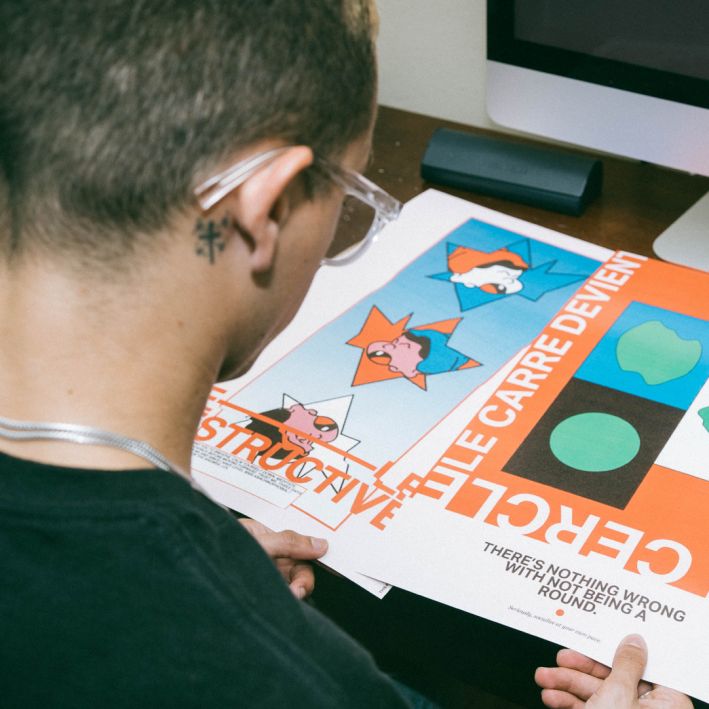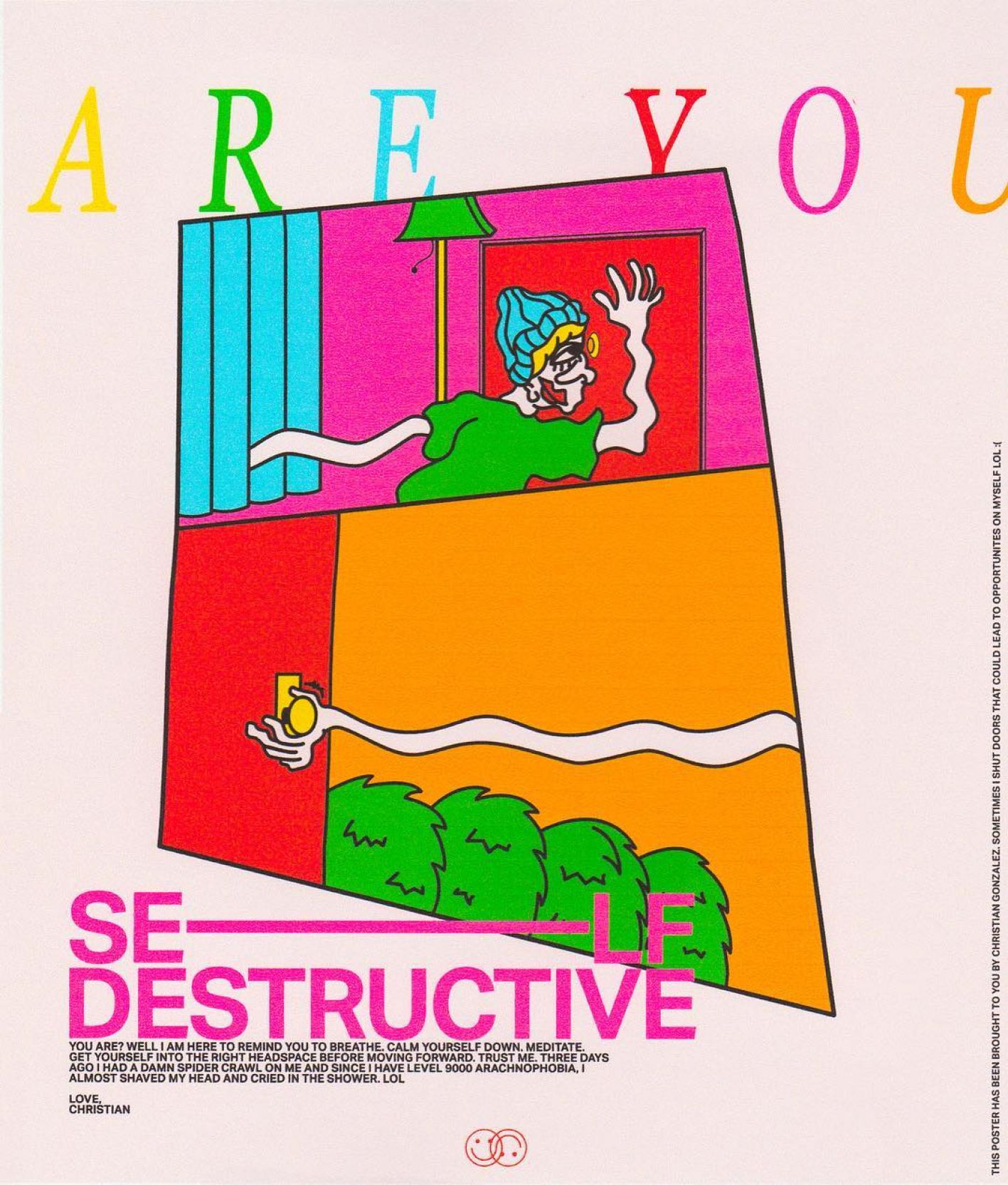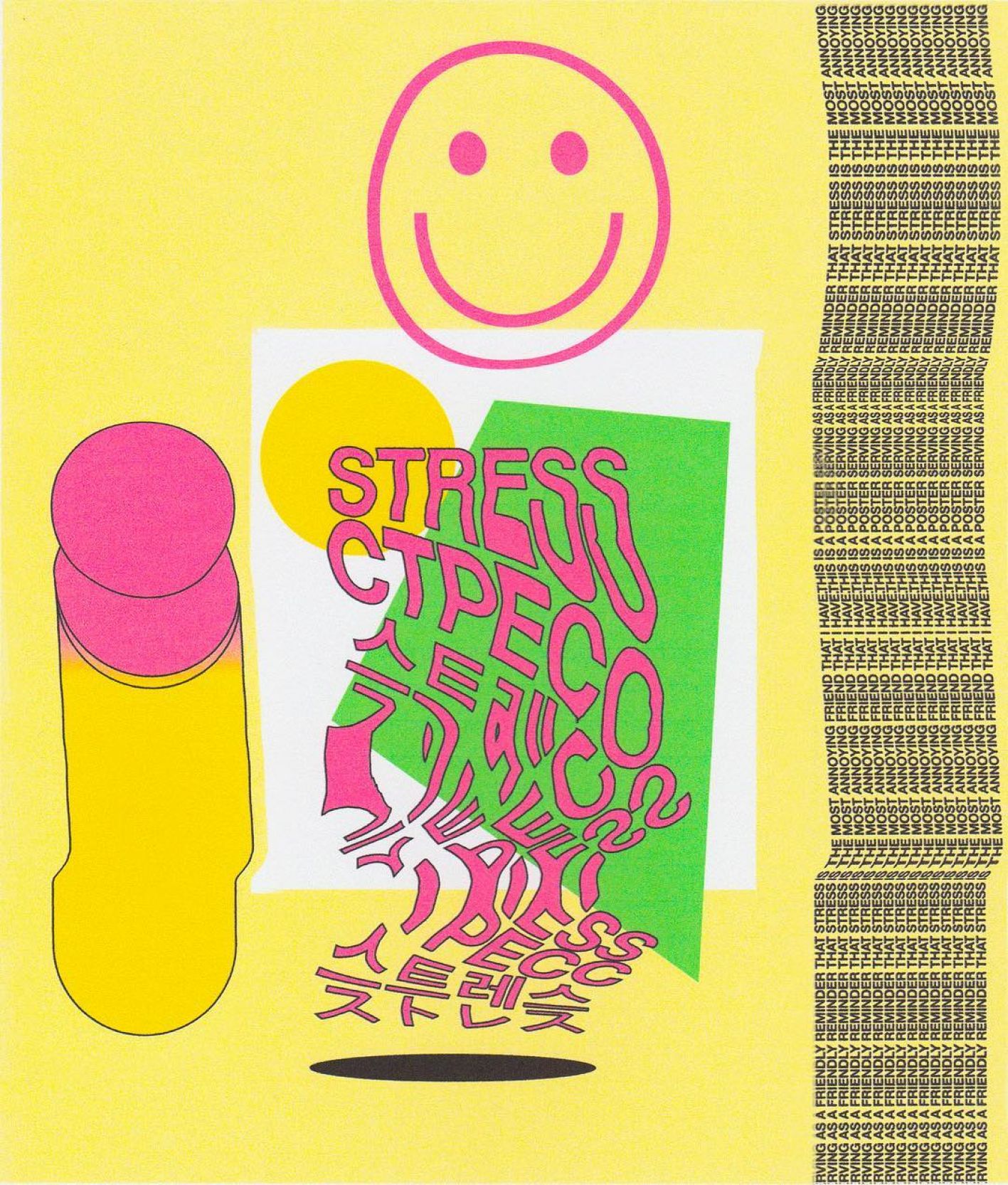Bad Boy Papi Thinks Real Men Should Cry
The Orlando based artist talks depression, therapy and the importance of self-love.
Written by Lauren O'Shaughnessy

A Google images search for “mental illness” produces some predictable scenes — people crouched in corners clutching their heads in anguish, anatomical brains surrounded by chemical compounds, silhouettes of sufferers gazing out windows in search of someone who understands.
The sentiment is clear: mental disorders bring isolation and fear into the lives of those affected. But the visualization doesn’t resonate. People battling mental disorders don’t want to be shrouded in darkness, they want their stories listened to and their insecurities addressed. They want faces, relatable ones, attached to an often faceless movement.
In this Q&A series, we help sufferers emerge from their figurative corners, by letting them describe their thoughts, feelings and experiences in their own words. And in doing so, diversify a conversation that is often formulaic and misleading.

Tell us about yourself – who you are, where do you live, what do you like?
My name is Christian “BadBoyPapi” Gonzalez and I’m a 27 year old Visual Artist based out of melting hot Orlando, Florida but born and raised in Bogota, Colombia. I’m a huge food devourer so a good meal mixed with chill time is what I like most about life. Oh and my cats. Love my fluffy piggies Mimi and Kioshi.
Have you ever been diagnosed with a condition? How long did it take? What barriers did you face?
I’ve been an emotionally driven boy all my life. After moving to the states at 9 years old, my mother went through a divorce with my step father. She fought hard for us to have a roof over our heads, which was difficult to watch. That triggered my first mild depressive episode in middle school. After that point, it became a part of my life, occurring at random a couple times each month. Even amidst all the amazing friendships I have, a father that loves me unconditionally, and a larger family that is my rock, depression has managed to make me lose site of my blessings. The mind is a powerful weapon that can make or break you. Once I reached my breaking point at 25 years old, I finally reached out for help.
Was there a specific low point that drove you to seek help or open up to a loved one?
I hit my lowest after my recent break-up. Was it caused by my ex-girlfriend? No. During the toughest parts of my life, I’ve always reacted by putting a bandaid over whatever it was that broke me. I’d keep myself busy by putting others needs before my own mental well-being. But band-aids can only hold something together for so long, and unfortunately, my last break-up triggered a mental breakdown. At that point, I realized that I needed more than just a friend. I needed someone who specializes in speaking to emotionally driven boys like myself.
Only through therapy and counseling was I able to build up the courage to let my family know about my depressive episodes — about what goes on in my mind and what I feel.
What stigma or cultural repercussions have affected, or still affect, your recovery?
I believe the whole “real men don’t cry” stigma is complete bullshit. Growing up, it immediately placed me in an emotional cubical. Showing your feelings, no matter your gender or chosen identity, is not a sign of weakness. It’s a sign of being human. I also think that a society in which everyone is always being watched via social media, plays into why we choose to bottle up our emotions and keep them to ourselves.

What coping tools help you manage your condition?
When I reached out to my therapist, I had the option of taking medication. I declined it. I knew that to really get better, I needed to feel whatever hurricane of emotions my depression would bring. My therapist gave me tasks and tips every session that helped me come out of these episodes in a positive state. Everything from complimenting myself out loud, to practicing talking to my friends about how I feel. It may sound small, but these were huge victories for me.
The most important coping tool I learned was to accept my episodes. To nurture myself in those low moments. To let everything out, pick myself up, and move on with the day.
In your opinion, what’s wrong with the current state of mental health care, both in your immediate community and on a broader scale?
I still believe that mental health is not being taken as seriously as it should. There’s been progress with people being vocal on social media, which is great. But we should be doing better. I don’t get why seeing a counselor or therapist isn’t a crucial part of medicaid or other plans. Mental health should be treated with the same care as physical health.
What are you doing to combat these issues? What do others need to do to create change?
Keep speaking about it. The more open we are (through social media, meetings, activist groups, etc.) the more people who are in their lowest of lows will know that they’re loved. If you’re a creative, use your talent as a voice. Sometimes design speaks louder than words, ya know?
What advice would you give to someone reading this right now?
Know that you are loved. Know that I love you. That what you’re feeling and thinking is normal. Know that there are people ready to help you figure yourself out. Whatever it is. Sometimes self-diagnosing can cause more harm than good. Speak up. There’s no shame in letting family and friends know that you’re not feeling bright. Together we are stronger.
About the author
Lauren is the editorial director and cofounder at the Made of Millions Foundation. She has been a part of the team since its launch in 2016. She has been open about her personal struggles with Generalized Anxiety Disorder and social phobia. You can follow her on Instagram at www.instagram.com/internet_lauren.
Support our work
We’re on a mission to change how the world perceives mental health.



















